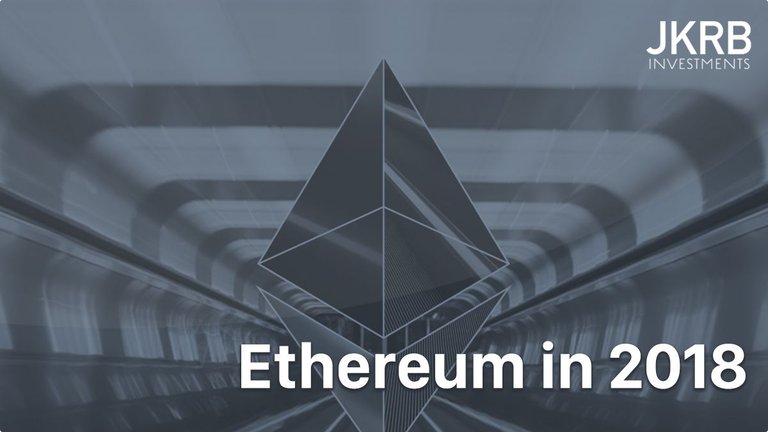
2018 has already proved to be very eventful with Ethereum hitting an ATH. This year will see many Dapps surpassing their prototype stages and moving into final production, dubbing 2018 the year of the Dapps.
Ethereum’s focus on scalability continues with a push into sharding research. Sharding has great potential to solve Ethereum’s scalability problem. Currently the blockchain is limited to 7-15 transactions per second. Compare this to Visa for some perspective, that is currently at 40,000 transactions a second.
Thanks to sharding, each user can only approve specific instruction sets and transfers of Ether between certain nodes. This way, the single user does not have to approve all transactions each time, the system becomes more efficient and the performance dramatically improves.
Scalability is not a limiting factor to Ethereum only; the high transaction costs of Bitcoin currently reflect the severity of transaction backlogs as adoption rapidly grows. As other altcoins inevitably grow and stumble across the same issue, they too will be looking for scaling solutions. However, the Ethereum Foundation are proving to be a leader in scalability research. In a field that involves rapidly evolving technology, it’s wise to back the leading horse, the innovators, the group of people with a clear path and goal.
In 2017 we saw the first round of ICOs. With a lack of regulation and education into the economics of blockchain tokens, we saw many companies creating ICOs for a quick buck, or genuine companies admirable of the ICO system but not understanding how it would impact their business long term, or how their token will perform and ultimately sustain value. 2018 will see more regulation in this field. ICOs are still a hot topic and a popular crowdfunding mechanism, and will continue to be for the foreseeable future.
From the beginning to the end of 2017 we saw daily Ethereum transactions go from 5,000 to 1 million, proving the blockchain can withstand rapid growth and support large numbers – relatively speaking. This is a good sign and will promote investor and developer confidence.
A note on accountability.
Unlike Bitcoin whose inventor / inventors are anonymous, behind Ethereum is a well known team of experts. This can give the investor confidence, but also introduces risk. If the founder leaves, or a figure seen as a vital asset to the currency leaves, then investor confidence falls. Similarly, if a high position profile cashes out a large amount of Ethereum, this will suggest confidence is falling within the inner circle.
Compare this to Bitcoin, and none of the aforementioned scenarios exist. This is a unique attribute of Bitcoin from an investment perspective.
Good to have people in the community who care about cryptocurrency! Appreciate your effort! I provide trending Cryptocurrency news daily. If you interested welcome to my blog @southforce
Coins mentioned in post: